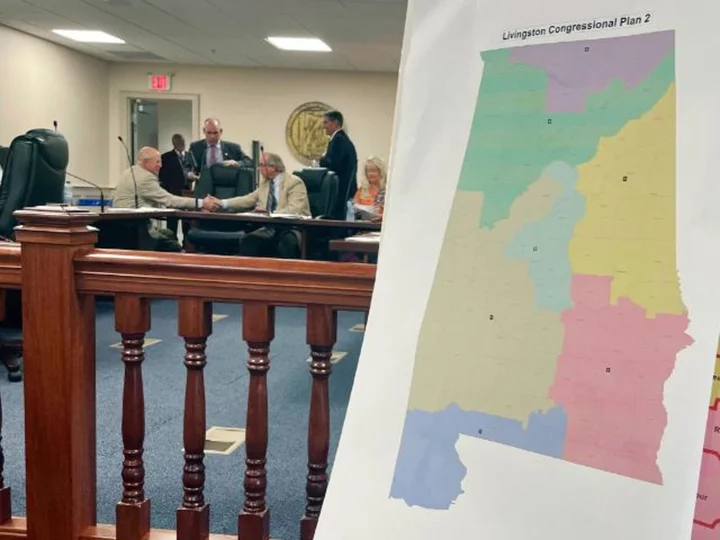Civil rights groups representing plaintiffs in a high-profile congressional redistricting case are urging a federal court in Alabama to reject a controversial new map crafted by the Republican-dominated legislature, saying it perpetuates a violation of the nation's landmark voting rights law.
In a late-night court filing Friday, the NAACP Legal Defense & Educational Fund and multiple attorneys asked a three-judge panel to direct an official to devise a new map that complies with the 1965 Voting Rights Act.
The plaintiffs in the case said legislators who drew and approved the maps didn't comply with a court mandate to create a second congressional district where Black voters have an opportunity to elect their preferred candidates.
Instead, they argued, lawmakers were "focused on pleasing national leaders whose objective is to maintain the Republican Party's slim majority in the US House."
State officials, who have defended the map as fair, have until August 4 to respond to the new filings.
The dispute has drawn national attention after critics accused Alabama legislators of openly defying the US Supreme Court and its directive to give Black voters more political power in the state.
And the outcome of the legal battle in Alabama -- along with court skirmishes in several other states over congressional redistricting -- could help determine whether Republicans retain their slim majority in the House after next year's elections.
In this case, the Republican supermajority in the Alabama legislature approved a new map on July 21, weeks after the US Supreme Court said that an existing map -- with just one majority-Black congressional district out of seven in a state where Black residents make up 27% of the population -- likely violated the decades-old federal voting law by diluting the voting power of Black residents. The high court, by a 5-4 majority, affirmed a lower court decision that had ordered the state to redraw the congressional maps to include a second majority-Black district or "something quite close to it."
But the map approved this month and signed into law by Alabama's GOP Gov. Kay Ivey instead boosted the share of Black voters in the majority-White 2nd Congressional District from roughly 30% to nearly 40%. It also reduced the Black voting-age population in the state's only majority-Black district to around 50% from about 55%.
Voting rights experts say the state has a history of racially polarized voting, making it harder for candidates favored by Black voters to win in a district where Black residents account for less than 50% of the voting-age population.
"The new CD2 ... does not provide Black voters a realistic opportunity to election their preferred candidate in any but the most extreme situations," the plaintiffs argued in the new filings.
In Alabama, most Black voters have supported Democrats. If the federal judges approve a map with a second majority-Black district, that could result in two Democrats representing the state in the House.
House Republicans hold just a narrow edge on Democrats, and the Supreme Court's decision in the Alabama case has given Democrats fresh optimism that their side will prevail in legal fights aimed at increasing the share of Black voters in congressional districts in Louisiana, Georgia and several other states.
In a sign of the high political stakes, House Speaker Kevin McCarthy has weighed in on the debate and told reporters that he spoke to Alabama lawmakers as they met for the special session to redraw the map to comply with the court order.
The Justice Department filed a so-called "statement of interest" on Friday but did not side with any party in the dispute. The agency outlined factors the judges should consider in its analysis and called on the court to impose its own map if it determines that the one drawn by lawmakers violated the Voting Rights Act.
A court hearing on objections to the legislature's map is set for August 14.

